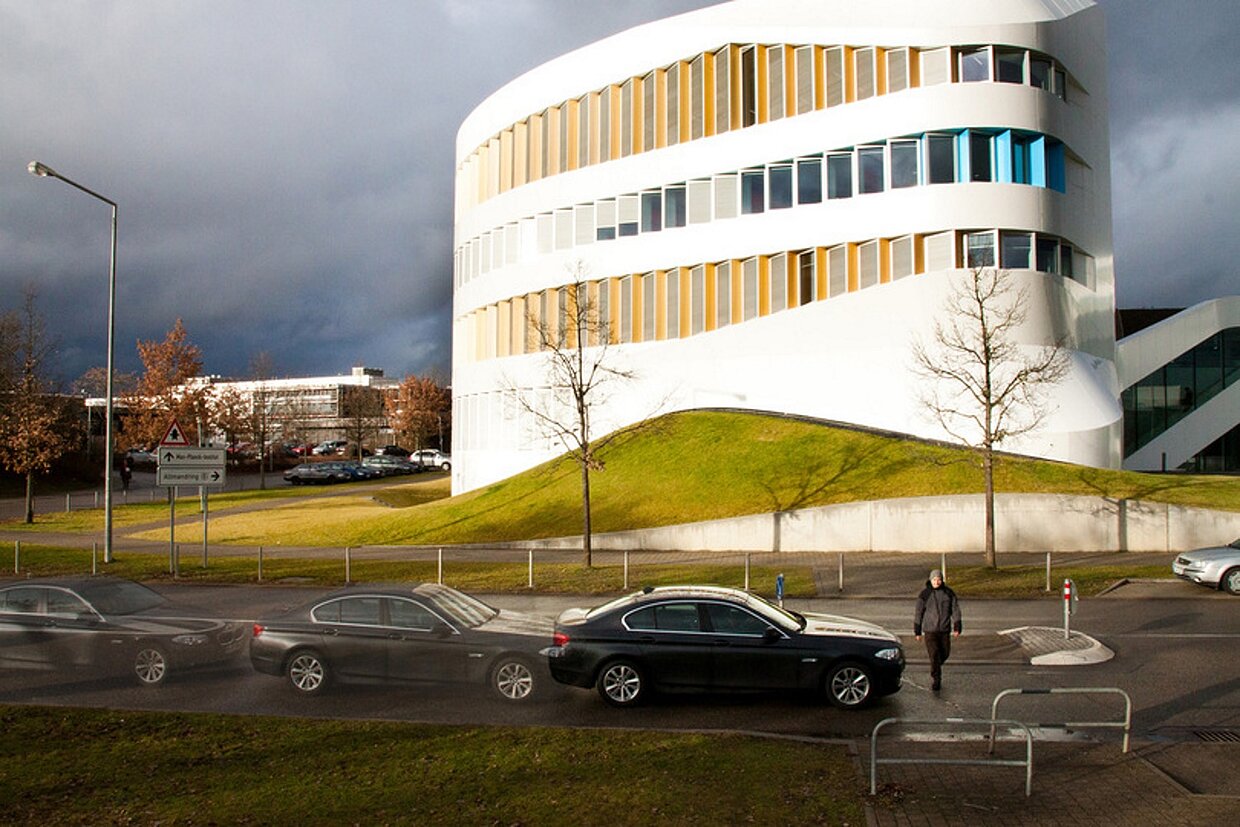Synthetic testing scenarios (replicating real, challenging road traffic situations) can be used to test automated driving functions in various simulation environments or in real test fields. The testing scenarios are made available to the public in an open, standardised format via a web portal and mCloud, which is the Federal Ministry of Transport and Digital Infrastructure’s data portal.

Pedestrians crossing from both sides of a shopping street at the same time is much more likely on a workday afternoon than on a Sunday morning. An alert and wary driver is aware of such probabilities, taking them into account at any time and adjusting his or her driving style accordingly. In the first scenario, the driver would slow down in anticipation of pedestrians stepping into the street in order to avoid hazardous situations or accidents. Such dynamic risk assessment is a fundamental function for future driverless vehicles. However, the relevant testing scenarios required for their development and validation are currently not available to OEMs and automotive suppliers.
Following a data-driven, AI-based approach, RELAI creates synthetic testing scenarios of wide-ranging variance that replicate real, challenging road traffic situations. Visualised on a tablet, these synthetic testing scenarios can be applied to test automated driving functions in various simulation environments or real test fields. The testing scenarios are made public online. Based on the measured data, new testing scenarios can be created automatically. They can then be used to evaluate driving behaviours adapted to various situations and complying with expectations.
Existing data sets describing critical driving situations, together with suitable data from mCloud, are analysed for parameters from the driving context and are then refined accordingly. AI-based learning methods are applied to develop and train models that transform these testing scenarios into general rules. This allows synthetic testing scenarios with a multitude of variations to be derived and then transferred into different testing environments. A web portal based on the EDI hive standard platform is under development and will be directly linked to mCloud.
Sponsored by the Federal Ministry of Transport and Digital Infrastructure.
